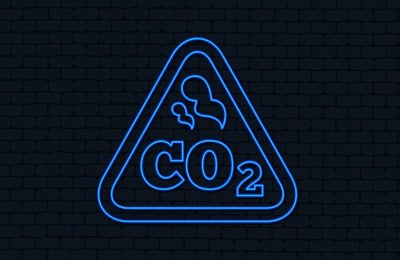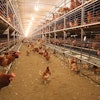
Reduced supplies of carbon dioxide (CO2) across Europe are hitting British meat companies, with potentially serious knock-on effects for the country’s poultry and livestock farmers.
More than half of the British poultry meat sector uses CO2 to stun the birds prior to slaughter, and all firms use the gas in packaging to help prolong product shelf-life, according to the British Poultry Council (BPC).
Poultry meat processors will have to slow or even halt production if they are unable to source supplies of CO2. And the BPC warns this would have impacts down the production chain as birds would need to be held on farm for longer, and day-old chicks cannot be dispatched from the hatchery to the growing facility.
Further up the production chain, supplies of poultry meat to retailers and all other users are at risk of severe disruption.
“It is worrying that failures in the gas sector can have such a potentially huge effect on British food production,” said BPC Chief Executive Richard Griffiths.
CO2 is a coproduct of the production ammonia, which is mainly used in fertilizers. Production in Europe usually stops in spring for maintenance, but CO2 stocks have until now been adequate to keep up with demand. However this year, several plants have scheduled maintenance at the same time, one has technical problems, and ammonia production has been lower than in previous years, creating a “perfect storm” for Europe’s CO2 users.
CO2 is used for gas-flushed and modified atmosphere packaging, according to the British Meat Processors Association (BMPA). A shortage of the gas therefore affects a wide variety of foods, including cooked and fresh meats, and ready meals.
BPC and BMPA say they are working with government and retailers to overcome the current challenges, and prioritize CO2 supplies for their respective members.
Shortage already impacting some businesses
Leading pig meat processor, Tulip, has been forced to stop production at one of its slaughter facilities in Scotland due to the CO2 shortage. In a statement to the National Pig Association, the firm stressed that animal welfare is its top priority.
Poor communication from the gas producers over the supply situation has been a source of frustration for Tulip.
The shortage of carbon dioxide is also affecting other parts of the UK’s food and beverage industry. The gas is vital for the production of beer and fizzy drinks, which are in high demand because of the World Cup soccer tournament, and the current prolonged period of above-average summer temperatures.
According to the BBC, one of the country’s top retailers, Asda — part of the Walmart group — has introduced a limit on the purchases of carbonated soft drinks for its online shoppers.
The shortage of CO2 was expected to last four weeks, according to the BMPA. One of the plants is scheduled to start up again in the coming days, but it could take two weeks for supplies to return to normal, according to Nick Allen, BMPA’s chief executive.

















